1215 Signing of Magna Carta in England
1497 European exploration began with the expedition of John Cabot, who was the first to draw a map of Canada’s East Coast
1534 to 1542 Jacques Cartier made three voyages across the Atlantic, claiming the land for King Francis I of France
1550s The name of Canada began appearing on maps
1604 The first European settlement north of Florida was established by French explorers Pierre de Monts and Samuel de Champlain
1608 Samuel de Champlain built a fortress at what is now Quebec City
1610 English settlement began
1670 King Charles II of England granted the Hudson’s Bay Company exclusive trading rights over the watershed draining into Hudson Bay
1700s The maple leaf was adopted as a symbol in Canada
1701 The French and the Iroquois made peace
1755 to 1763 “Great Upheaval”: during the war between Britain and France, more than two-thirds of the Acadians were deported from their homeland.
1758 The first representative assembly was elected in Halifax, Nova Scotia
1759 The British defeated the French in the Battle of the Plains of Abraham at Quebec City — marking the end of France’s empire in America
1763 The Aboriginal territorial rights were first guaranteed
1774 The British Parliament passed the Quebec Act
1776 – The thirteen British colonies to the south of Quebec declared independence and formed the United States
– Joseph Brant lead thousands of loyalist Mohawk Indians into Canada
1791 – The Constitutional Act was passed and divided the Province of Quebec into Upper Canada (later Ontario)
– The name “Canada” became official
1793 Upper Canada became the first province in the Empire to move toward abolition
1800s Ice hockey was developed in Canada
1805 The defeat of Napoleon Bonaparte’s fleet in the Battle of Trafalgar
1812 The United States launched an invasion in June to conquer Canada
1814 The American attempt to conquer Canada failed
1815 The Duke of Wellington defeated Napoleon
1832 The Montreal Stock Exchange opened
1833 British Parliament abolished slavery throughout the Empire
1840 Upper and Lower Canada were united as the Province of Canada
1847 to 1848 Nova Scotia became the first British North American colony to attain full responsible government
1849 Sir Louis-Hippolyte La Fontaine, a champion of French language rights, became the first head of a responsible government
1854 The Victoria Cross, the highest honour available to Canadians, started to be awarded that year
1857 Ottawa, located on the Ottawa River, was chosen as the capital by Queen Victoria
1860s The Parliament buildings were completed
1864 Sir Leonard Tilley suggested the term “Dominion of Canada”
1867 – On July 1st, the Fathers of Confederation established the Dominion of Canada, the birth of the country that we know today
– The British Parliament passed the British North America Act, now known as the Constitution Act
– Sir John Alexander Macdonald, a Father of Confederation, became Canada’s first Prime Minister
– Canada became a constitutional monarchy
– The responsibilities of the federal and provincial governments were defined
1869 Canada took over the vast Northwest region from the Hudson’s Bay Company
1873 The RCMP (Royal Canadian Mounted Police) was created
1890s Yukon Gold Rush
1891 Basketball was invented by Canadian James Naismith
1916 Manitoba became the first province to grant voting rights to women
1917 The Canadian Corps captured Vimy Ridge, securing the Canadians’ reputation for valour as the “shock troops of the British Empire.”
1918 Most Canadian female citizens aged 21 and over were granted the right to vote in federal elections
1920 Foundation of the Group of Seven, who developed a style of painting to capture the rugged wilderness landscapes
1921 King George V assigned Canada’s national colours (white and red)
1927 – The Peace Tower was completed, in memory of the First World War
– Old Age Security was devised
1929 Stock market crashed which lead to the Great Depression or the “Dirty Thirties”
1934 The Bank of Canada was created
1940 Unemployment insurance (now called “employment insurance”) was introduced by the federal government
1944 In the Second World War, the Canadians captured Juno Beach on June 6, as part of the Allied invasion of Normandy on D-Day
1947 The discovery of oil in Alberta began Canada’s modern energy industry
1948 The Japanese-Canadians gained the right to vote
1951 For the first time, a majority of Canadians were able to afford adequate food, shelter and clothing
1952 Queen Elizabeth II became Queen of Canada
1960s Quebec experienced an era of rapid change known as the Quiet Revolution
1960 Aboriginal people were granted the right to vote
1965 – The new Canadian flag, as we know today, was raised for the first time
– The Canada and Quebec Pension Plans were devised
1967 Canada started its own honours system with the Order of Canada
1969 Parliament passed the Official Languages Act, which guarantees French and English services in the federal government across Canada
1970s The term First Nations began to be used
1980 – Terry Fox, a British Columbian who lost his right leg to cancer at the age of 18, began a cross-country run, the “Marathon of Hope,” to raise money for cancer research. He became a hero to Canadians
– O Canada was proclaimed as the national anthem
1982 – The Constitution of Canada was amended to entrench the Canadian Charter of Rights and Freedoms
– Queen Elizabeth II proclaimed the amended Constitution in Ottawa
1988 Canada enacted free trade with the United States
2006 The House of Commons recognized that the Quebecois form a nation within a united Canada



